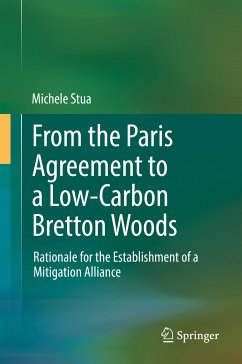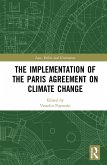- Which low-carbon pathways are compatible with the new temperature targets set by the Paris Agreement?
- Can new entities like the Carbon Club have a decisive role in guaranteeing the alignment of the aggregate mitigating actions with the global objectives identified within the Paris Agreement?
- What role will be played by market and non-market approaches within the proposed framework?
- How can economic, social, and environmental sustainability be ensured during the implementation of the Agreement?
- How can justice and equity be encouraged between the Parties and all the involved actors as required by the Agreement?
- Which instruments can be designed and adopted to provide the expected degree of transparency for the new system?
To respond to these questions the book adopts a holistic approach, able to emphasize the strong interrelations. The book discusses the opportunity to develop a Carbon Club within the Article 6 framework, and provides a feasible roadmap for its means of implementation, rules and governance structure. The final result is a feasible policy proposal that takes into account all the key issues introduced by the questions, and draws a roadmap towards a 'low-carbon Bretton Woods'.
Dieser Download kann aus rechtlichen Gründen nur mit Rechnungsadresse in A, B, BG, CY, CZ, D, DK, EW, E, FIN, F, GR, HR, H, IRL, I, LT, L, LR, M, NL, PL, P, R, S, SLO, SK ausgeliefert werden.









